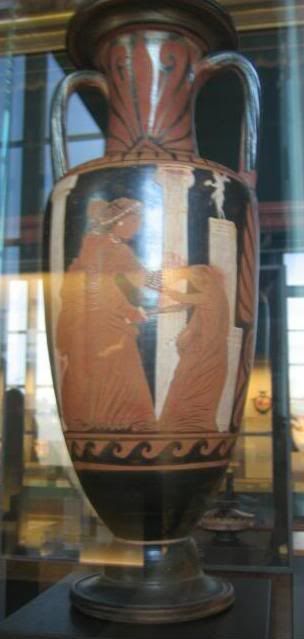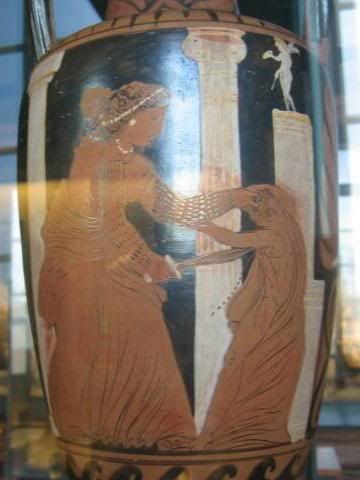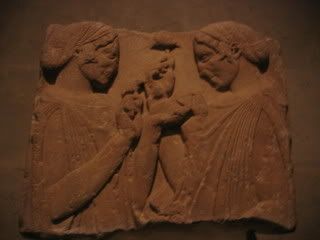A whimpering end to the Sappho saga...
The good news is that I finally have my very own copy of the Martin West article on Sappho in the TLS. The bad news is that somebody in the area was even more keen than I and beat me to both Borders locations! Thus, there was only one left in each location. The third location isn't sure if they're sold out or have not yet received their copies. Based on the rate at which they sold at the other two locations, I'm betting it's the former.
Moral of the story: Next time you call every day for an apparently popular edition of a newspaper, ask them to put them on hold for you the moment it comes in.
Other moral of the story: Barring that, call in the morning!
Of course, the reason I didn't call in the morning was because Vergil kept me up most of the night.
That said, I received a call from the Kennedy Center this morning, asking me about their recent production of Hecuba. I actually really enjoyed the RSC's production (and I'm not the only one), and when they asked me what I thought about the chorus actually singing, I all but told them that was my favourite part.
I don't think the poor guy was expecting a gushing Classics major on a Thursday morning.
Harking back to the original purpose of this blog (which seems to have spiraled off into much more, and hopefully much more interesting), I finally got around to making my GRE appointment. I was about to confront the phone, finally, when it occurred to me that I could avoid the phone altogether and apply online at www.gre.org. I'm not quite sure why that didn't occur to me before.
And on yet another note, I wanted to present, for your edification and enjoyment, another picture from my time in Paris. In keeping with the theme of vengeful child-murderesses, I give you this vase from the Louvre. Yes, my companions laughed at my predictability for honing in on Medea:

And a close-up of Medea:

I wish the window had not been open, as there was very little I could have done about the glare.




